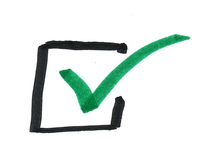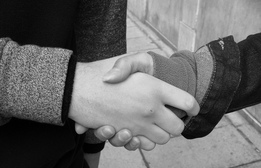
Brace yourself for a healthy dose of irony. I’m about to embody a thing while decrying it, to challenge a behavior while adopting it myself.
I spend more time than I’d like on Facebook. I find social media useful, but it tends to bring out the worst in people, myself included, and there are days I consider removing myself from the conversation altogether. Today is one of those days.
I scroll through my Newsfeed and wonder how I became friends with so many people who see things so differently than I do. That perennial Facebook staple—the rant—has me hovering over “unfollow” or “unfriend;” in some cases it even dares me to. “Feel free to delete yourself if you disagree with me,” so many disclaim before going off on any number of tangents for offenses real or imagined but for whatever reason important enough to spew poison all over the Internet.
This morning I saw a writer and speaker for whom I have great respect get pilloried for daring to voice an opinion that varied from that of many of her followers. The few minutes I spent scrolling through the comments were all I could stand—the name calling, the dismissals of alternative view points, the threats of unfollowing, the utter lack of any semblance of civility—I could not take any more of it.

A politician speaks inelegantly, a person makes a mistake, a tense moment none of us actually saw devolves into chaos—these things have always happened—but now they are captured on camera, broadcast for the masses, replayed and critiqued and written about ad nauseam online until someone else makes a bigger mistake. And the resulting climate is diseased: We are cynical, callous, unkind, assuming the worst; we are all up in arms all the time. And in the rare instant that we’re not enraged, we’re just waiting for the next injustice to gripe about on Facebook, eager for our next opportunity to complain to people who already agree with us.
We don’t seek to understand. We don’t seek to unite. We’re not peacemakers. We look to bolster ourselves with others who think just like us and draw increasingly wide lines in the sand that separate “us” from “them.” We complain about our leaders, who can’t manage to see past their differences long enough to run the country, but most of us are actually no better.
And it’s wrong. And yes, I recognize the hypocrisy of my righteous indignation over everyone else’s righteous indignation, but please, stick with me.

I understand the inclination, though. For example, I’m a Christian, and I’d like to be able to assume that others who bear the name wouldn’t be racist or sexist or intolerant of people “other” than them. I’d like to dismiss people who profess Jesus with their lips and then talk about “those people.” Their comments make my blood boil. And yet.
If I, a fellow Christian they’ve accepted but who challenges their thinking, dismiss them outright, how am I any better? How can I elevate the conversation if I excuse myself from it? My skin crawls with every flip comment, and yet, I know I’m called to stay. Because this characteristic of theirs is not their whole person, and if I dismiss them outright because of it, I am wrong.
I often find myself in relationship with people I like—even people I love—who see things opposite of me politically, culturally—you name it. I think I’m right, obviously, and so do they. In reality often neither of us is, of course. We can choose to walk away in search of people who just get it, who already see things the way we do. But what does that accomplish?
We’ve lost the ability to disagree respectfully. It’s easy to dismiss someone who thinks differently as an uninformed idiot, to denigrate someone who believes other than us as somehow less than. We fight for our right to believe and speak and celebrate, all the while wanting to repress the same right in others should they disagree with us.
We dare friends to unfriend us, we speak hatefully; we do not allow space for dissent. And I had to stop myself just today from engaging in an argument online that I had no business entering into. With a person I like, but with whom I just happen to disagree. The frustration that compels me here is building on all sides, not the least of which from the inside. When I say “we” I mean it.

But what if we all just take a deep breath and consider there might be value in having discussion with those with whom we disagree for the sole purpose of understanding where they’re coming from. What if we put our belief that we’re right, our tendency toward righteous indignation—all of it—aside. What if we allow ourselves to be humble enough to admit that our experience isn’t necessarily everyone else’s, and that it would be nearly impossible to separate experience from worldview. What if we decide everyone matters, whether we agree with them or not. What if we behave as if everyone is worthy of being heard and understood; what if we stopped assuming we know all we need to know about a person based on a label we’ve given them. What might happen then?
You want to see me get really fired up? Let’s talk about this issue in the confines of Christianity, or of the collective Church. We ought to be leading others in our example of patience and love. We have every reason to be so steadfast in our faith that we know dissent does not threaten it. Your disagreement with my faith does nothing to alter it; if we say we know Jesus, we know better. I’m so tired of all the petty behavior, the boycotts, the petitions, the ridiculous hyperbole. My Jesus is big enough to withstand my doubt and your disbelief. He didn’t ask us to defend our right to say Merry Christmas instead of Happy Holidays, to create laws to sure up our morality; he commanded us to love our neighbor as ourselves. Not just the neighbor we happen to like, not just the neighbor who looks like us, not just the neighbor we’re comfortable with, not just the neighbor whose “lifestyle” fits our worldview. All. Of. Them. (See Luke 10:29 for how Jesus felt about the question, “But who is my neighbor?”) I’ve been so embarrassed by the judgmental, angry voices dominating the public perception of Christians. I have had enough.

I am philosophically at odds on many issues with many people I love. But that’s the thing about love—it doesn’t care. What if we choose not to be roped in to the crisis du jour and instead resolve to listen first, to ask questions first, to try to understand, to remain calm, and to elevate the collective conversation. What if we decide to love everyone, not even when we disagree, but especially when we disagree. What might we accomplish then?
Let’s start here; I’ll put my money where my mouth is. If you disagree with me, please don’t unfollow me. Please stay. Let’s trade our fear and disrespect for love; let’s be the change we want to see.
 RSS Feed
RSS Feed


